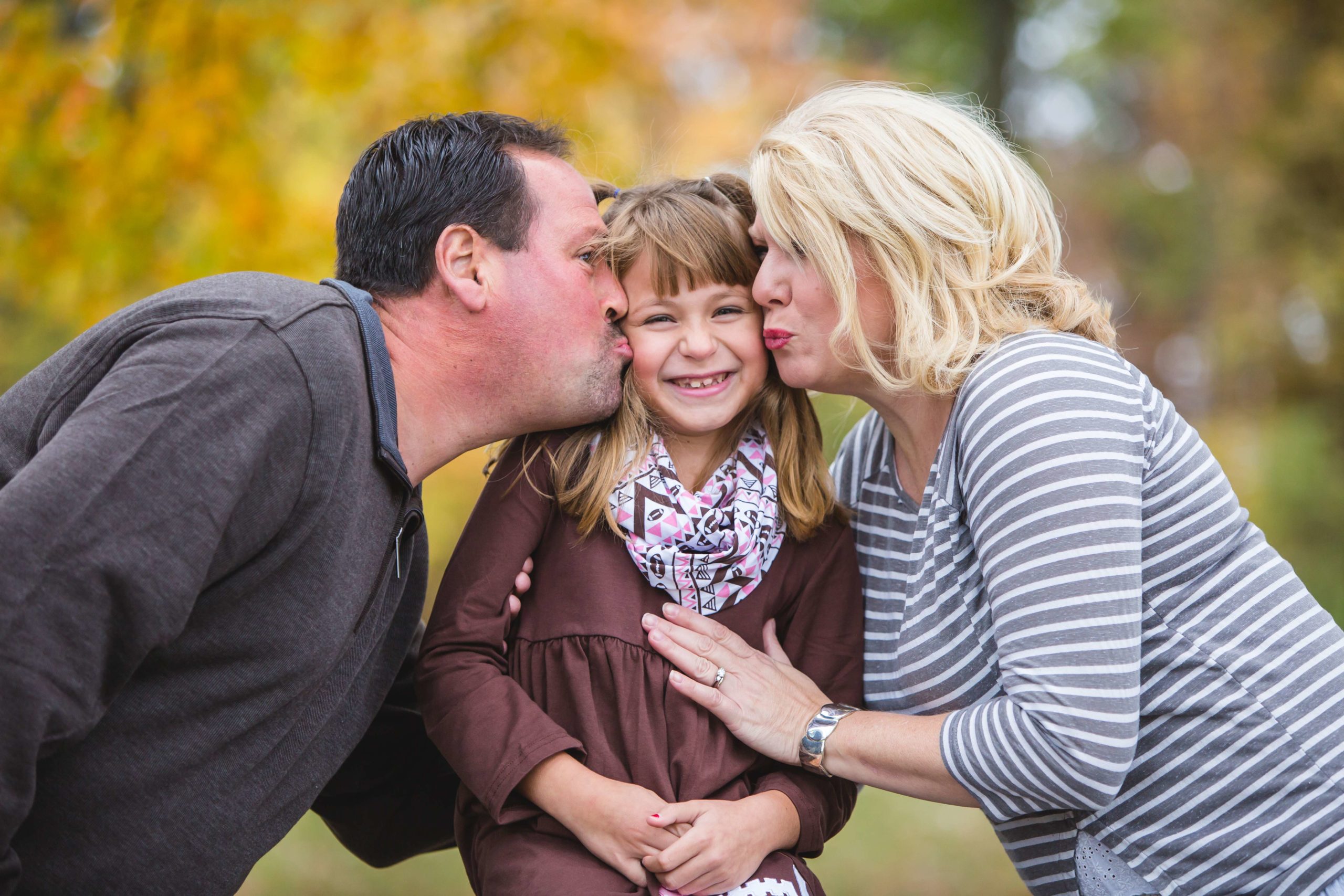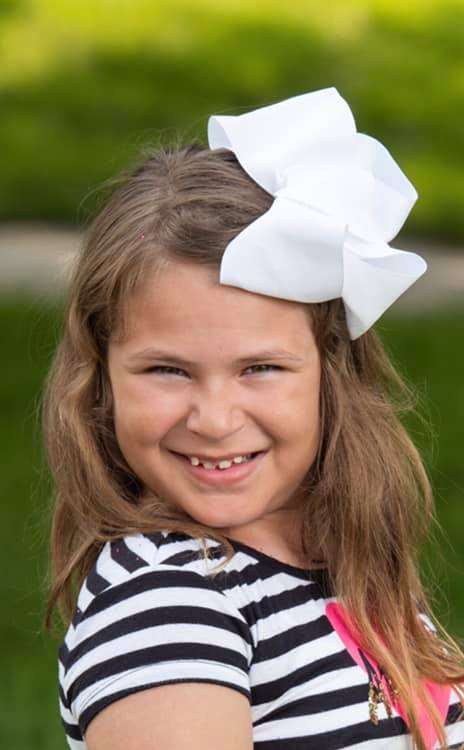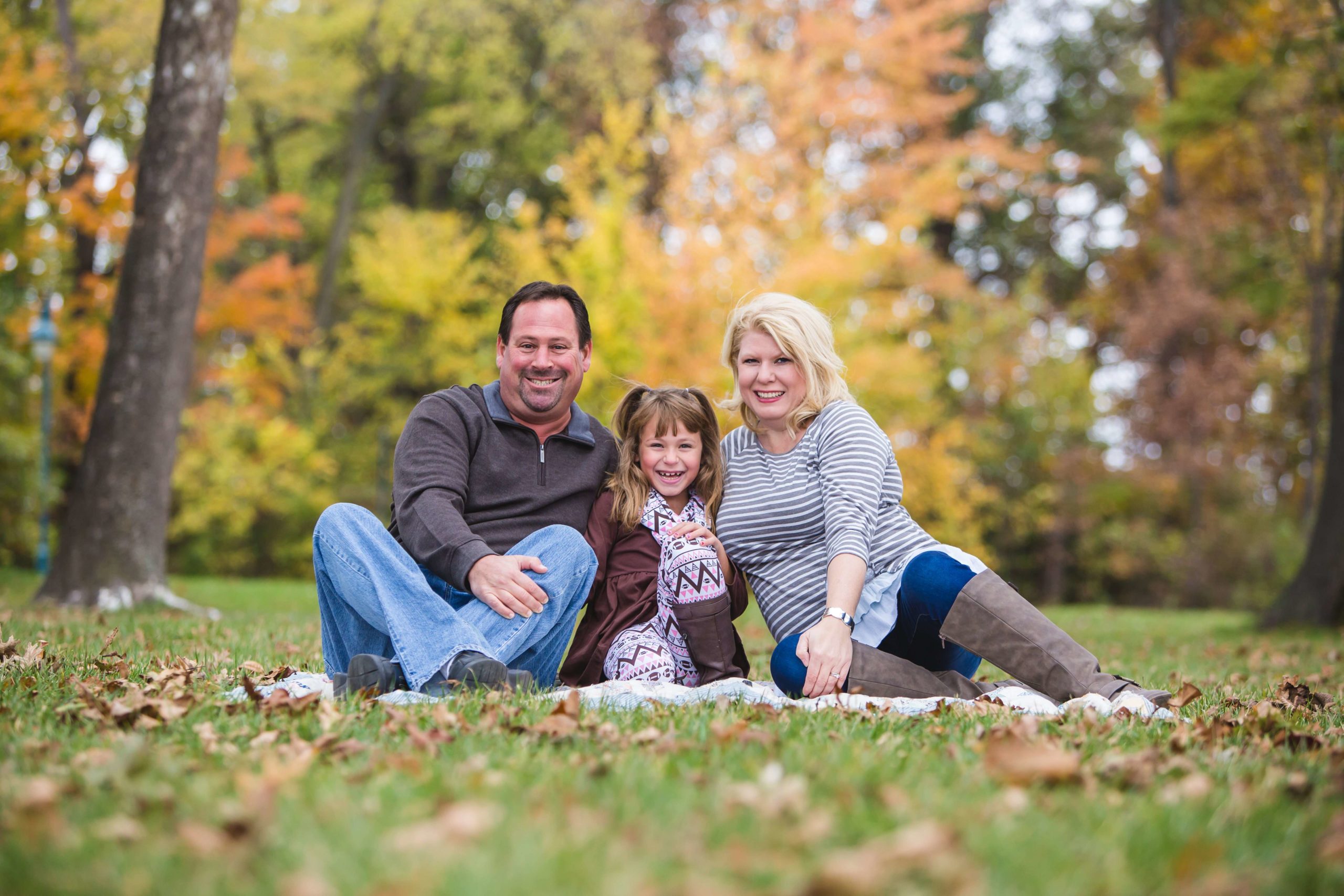
A Little Girl from Indiana is Pursuing Her Dreams Thanks to Her New Kidney
 March 2, 2020 — March is National Kidney Month, which is a month-long, awareness-raising grassroots effort to spread the word nationwide about the importance of kidney health. An Indiana transplant family knows all too well the life-saving difference a healthy kidney can make.
March 2, 2020 — March is National Kidney Month, which is a month-long, awareness-raising grassroots effort to spread the word nationwide about the importance of kidney health. An Indiana transplant family knows all too well the life-saving difference a healthy kidney can make.
Paula and David Check of Fishers, Indiana, remember the excitement of learning they were pregnant with their first child. Paula’s pregnancy was normal by all accounts and they were simply counting the days until their precious baby would be born. Baby Lydia arrived in December 2009 and the family of three felt complete. She was an adorable infant who grew into a toddler — her first years of life seemed ‘normal’ to both Paula and David.
But during the summer months of 2014 Paula noticed then four-year-old Lydia was becoming increasingly sick, tired and weak. By the fall months Lydia was vomiting and having diarrhea regularly. She began bleeding from her bowels. Paula remembers taking Lydia to the family doctor several times insisting there was something seriously wrong with their little girl. In January 2015 Lydia’s weight loss became incredibly noticeable; she was literally skin and bones. In February 2015 a gastro intestinal specialist diagnosed Lydia with Ulcerative Colitis, which meant she had bleeding ulcers in her stomach and colon. Eight months later in September 2015 it was determined Lydia also had a serious kidney issue that would require a kidney transplant for her long-term survival.
Lydia, with a little help from her mom, has written a narrative about her transplant journey. Here is how Lydia tells her transplant story to date:
Hello my name is Lydia, I am 10 years old, and the last six years have been really difficult. I have been sick since August 2014 with an autoimmune disorder. When I was younger I was weak, tired and had extreme weight loss. My parents took me to the doctor repeatedly, always telling him something was wrong. But my problem went undiagnosed until January 2015. That is when I began treatment for Ulcerative Colitis. After several doctor appointments and medications, it went into remission.
In August 2015 something was not right with my kidney function. Labor Day weekend I was admitted to Riley Hospital for Children and I had a biopsy performed. I spent the entire day in bed. I was required to lay flat on my back to prevent bleeding from the procedure. The next three days in the hospital I was given super strength IV steroids. I initially showed improvement from the steroids and was sent home on Labor Day afternoon. Steroids work great for some people but I was not showing signs of improvement — just the side effects of weight gain, a puffy face, lots of emotions and not being able to sleep through the night. In May 2016 a G Tube was placed in my belly so medications could go right to my tummy. An overnight drip of Pedialyte was started to keep me from dehydrating. Testing determined I have a genetic disease.
Lydia’s diagnosis, Nephronophthisis, is a genetic disorder of the kidneys that affects children. The disorder is inherited in an autosomal recessive fashion and, although rare, is the most common 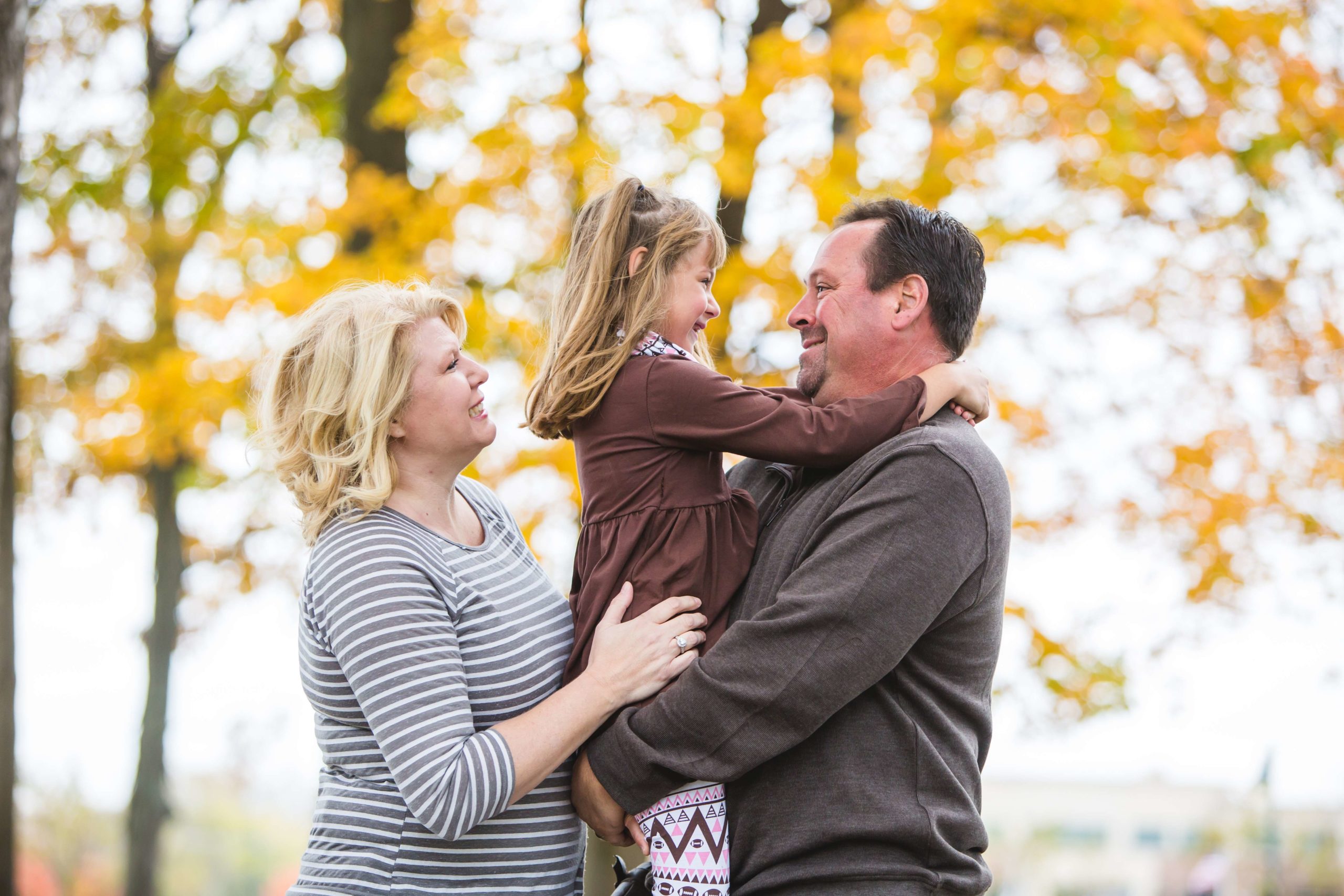 genetic cause of childhood kidney failure. Although the range of characterizations is broad, those kids affected by nephronophthisis typically produce a large volume of urine, drink excessive amounts of liquid, and after several months to years, develop end stage renal (kidney) disease — a condition necessitating either dialysis or a kidney transplant in order to survive.
genetic cause of childhood kidney failure. Although the range of characterizations is broad, those kids affected by nephronophthisis typically produce a large volume of urine, drink excessive amounts of liquid, and after several months to years, develop end stage renal (kidney) disease — a condition necessitating either dialysis or a kidney transplant in order to survive.
As Lydia’s kidney disease progressed, Paula and David started meeting with the transplant team at Riley Hospital for Children. In January 2017, upon a transplant social worker’s urging, Paula called the Children’s Organ Transplant Association (COTA) to learn more about fundraising for transplant-related expenses. COTA is a 501(c)3 charity so all contributions to COTA in honor of Lydia are tax deductible to the fullest extent of the law, and COTA funds are available for a lifetime of transplant-related expenses. COTA uniquely understands that parents who care for a child or young adult before, during and after a life-saving transplant have enough to deal with, so COTA’s model shifts the responsibility for fundraising to a community team of trained volunteers. On February 24th Lydia became part of the COTA Family.
A COTA fundraising specialist travelled to Fishers, Indiana, on March 20th to train the family’s volunteers and walked them through the entire process. This group of family members and friends quickly got to work organizing fundraisers to help with mounting transplant-related expenses. According to Paula, COTA’s team of professionals was supportive, encouraging and very helpful every step of the journey.
Once we found out I needed a new kidney, several people started the testing process to see if they could be my living donor. Those tests were unsuccessful. In late 2017 I was approved to be on the national kidney waiting list. However my wait was long and in August 2018 I went from low kidney function to kidney failure. That is when the doctors told us it was time to begin dialysis. Our family decided hemodialysis was the best choice and I went in for the surgery that would allow me to be on dialysis. During the first surgery I lost a lot of blood and needed a blood transfusion. Then they were unable to get the dialysis machine up to full speed during my first treatment. It was decided there was a problem with my central line and they needed to do surgery again. This time i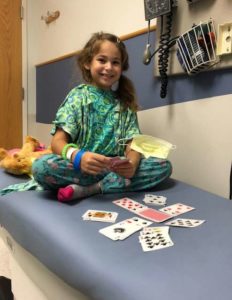 t worked. I was on dialysis four hours a day, three days a week. It was long and exhausting.
t worked. I was on dialysis four hours a day, three days a week. It was long and exhausting.
On August 31, 2018, right when we got home from dialysis, Mom got a phone call from Riley. They had a kidney match for me! It was an emotional roller coaster. I was happy. I was scared. I had no idea what to expect. The next day on September 1st, I received my new kidney and the transplant was a big success. Sixteen days later on September 17th I was released from the hospital to go home. Wow.
“I knew Lydia’s transplant surgery and follow-up care and medications and everything would be very expensive. Once we found COTA a huge stressor was lifted from our shoulders. If we had not been introduced to COTA our family would have been very lost during a time of tremendous need. COTA gave us the strength and direction we needed to get through a very challenging chapter in our family’s story,” Paula said.
“The Children’s Organ Transplant Association (COTA) gave us hope when we were feeling hopeless. COTA’s team of professionals were supportive and encouraging every step of the way. Knowing COTA funds are not just for the expenses leading up to a transplant but will be there throughout Lydia’s life is truly amazing. If we had not found COTA, we would have been lost during a time of tremendous need. COTA gives our family strength and direction, and will continue to do so … for a lifetime,” Paula said.
Lydia returned to Fall Creek Elementary and completed third grade with her new kidney. She also was able to return to her beloved dance classes at Wishes Dance Studio. When asked how life has been with her new kidney Lydia said, “I have done amazing things like riding on my very own float in the Fishers Spark Parade, running in a Super Hero 5K, going to my first Indiana Pacers game, and meeting Mickey & Minnie Mouse.” These days dancing remains at the top of the list of the things Lydia enjoys doing, but she also loves singing, pretending she is a Super Hero, cheerleading and meeting Disney princesses. She also loves to tell the story of her transplant journey.
Lydia’s new lease on life has allowed her to start dreaming about a future, which is the best gift Paula and David can imagine for their vivacious girl who has a huge smile and a huge heart. Lydia’s bucket list currently includes taking a Disney Cruise, seeing the Eiffel Tower in Paris, meeting Taylor Swift and having tea with the Queen of England.
In Lydia’s word, “Wow.”
March is designated National Kidney Month to raise awareness about the prevention and early detection of kidney disease. More than 30 million Americans have kidney disease, and many do not know it. There are more than 100,000 people waiting for kidney transplants, with close to 600,000 people in the United States suffering with kidney failure. More than 3,000 new patients are added to the kidney waiting list each month; 13 people die each day while waiting for a life-saving kidney transplant. Every 14 minutes someone is added to the kidney transplant list. You can visit www.RegisterMe.org to indicate your wish to be a life-saving donor.
